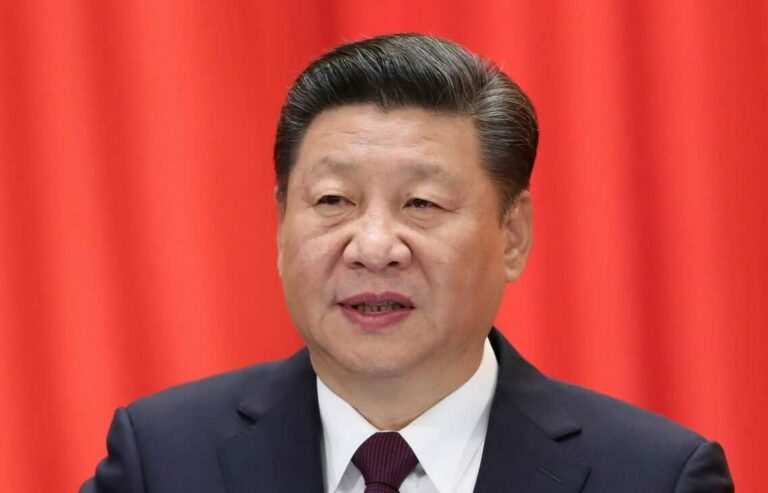
This article was originally published by Radio Free Asia and is reprinted with permission.
Authorities in China are stepping up nationwide “stability maintenance” measures — including hauling in a prominent financier for questioning and placing restrictions on a prominent Protestant church leader — ahead of the annual session of the country’s rubber-stamp parliament, the National People’s Congress, Radio Free Asia has learned.
Hong Kong-listed China Renaissance Holdings said its chairman Bao Fan, who has been dubbed China’s “Mergers and Acquisitions King,” is currently facing questioning by the authorities, after he was reported incommunicado.
The private venture capital firm said in a filing to the Hong Kong Stock Exchange dated Feb. 26 that Bao is “currently cooperating with an investigation by the relevant Chinese authorities,” and that company operations would proceed as normal.
Soon after Bao went incommunicado, the ruling Chinese Communist Party’s disciplinary arm issued a criticism of the concepts of a “financial elite,” and the idea that “only money matters.”
The party needed to “correct unwritten rules and unhealthy tendencies in the industry, and deepen systematic reform of financial institutions,” the Central Commission for Discipline Inspection said.
Xie Tian, a professor at the Aiken School of Business at the University of South Carolina, said Bao’s disappearance was reminiscent of that of Canadian national Xiao Jianhua, who was kidnapped from a Hong Kong hotel in 2017 before being jailed for 13 years in August 2022 by a Shanghai court, which found him guilty of billions of dollars’ worth of financial offenses.
“We know that since the Jiang Zemin era, [all the Chinese leaders have] factions, and different families control energy, telecommunications, transportation, and electricity, although this isn’t made public,” Xie said.
“I think Bao Fan is one of them. The National People’s Congress opens soon, and the case of Bao Fan has something to do with Xi Jinping’s … taking the opportunity to purge these factions … as part of a political clean-up,” he said.
Sydney University of Technology professor Feng Chongyi agreed.
“It looks as if he is now broadening the scope [of the anti-corruption campaign] and systematically cleaning up the entire financial system,” Feng said.
“Some in key positions that he does not trust and people who are not from his faction will be sidelined … with anti-corruption work the most convenient reason [this],” he said.
Meanwhile, the rights website Civil Rights and Livelihood Watch reported on Feb. 28 that police in the southwestern province of Sichuan confined the deputy deacon of the Chengdu-based Early Rain Covenant Church in his home, along with his family.
“When we were about to go out in the morning [of Feb. 26], we opened the door to find two police officers, a man and a woman there, along with two auxiliary police officers, and staff from the residential committee and property management,” the website quoted deputy deacon Xiao Luobiao as saying.
“They told us that the Sunday meetings of the Early Rain Covenant Church are illegal, and refused to let us leave,” Xiao said, adding that the officials had snatched away his wife’s phone, prompting an angry outburst, after which police returned the phone to Xiao.
“I said I was going to get breakfast, but they wouldn’t allow this … and bought it for me instead,” he said in written comments to Civil Rights and Livelihood Watch. “We had no choice but to have our Sunday worship at home.”
U.S.-based Ren Ruiting, a former member of the Early Rain church, said the church is on the authorities’ “most sensitive” stability maintenance list.
“Now that the parliamentary sessions are coming up, they are getting flagged up on lists of people who need to be kept at home,” Ren said.
“Everyone gets harassed around the time of the [National People’s Congress],” Ren said.
In Beijing, veteran rights activist Hu Jia said he was unable to communicate with the outside world, following reports on social media that he is being held at home and prevented from being with his terminally ill father ahead of the congress, which opens in Beijing on March 5.
“I don’t know why you’re calling but I think you’re probably a friend,” Hu said when contacted by phone on Wednesday. “If you are a friend, thank you very much for calling.”
“I can’t hear anything [you are saying], and maybe you won’t even be able to get through if you call again,” he said. “I’m really sorry, I didn’t make it this way, but I have no way to be in two-way communication right now.”
Hu’s Twitter account has been moribund for the past year, while accounts on overseas-based chat apps have been deleted.
Repeated calls to the Tongzhou district police department in Beijing and to Hu’s local Zhongcang Street police station rang unanswered during office hours on Wednesday.
Hu, a veteran health rights activist and prominent critic of mass demolitions and evictions to make way for the 2008 Olympic Games in Beijing, has been repeatedly targeted for house arrest and enforced, out-of-town “vacations” in the company of state security police in recent years, ahead of politically sensitive dates and major events.
Official party newspaper The People’s Daily reported on Feb. 27 that a special taskforce has been set up in the central province of Henan to “manage emotions and resolve conflicts” after a man killed his wife in Hua county.
“Some netizens spread false information on the Internet and deliberately exaggerated the facts,” the paper’s online edition reported. “We would like to remind netizens that the internet is not a place outside the law … and that they shouldn’t believe or spread rumors.”
0 comments :
Post a Comment